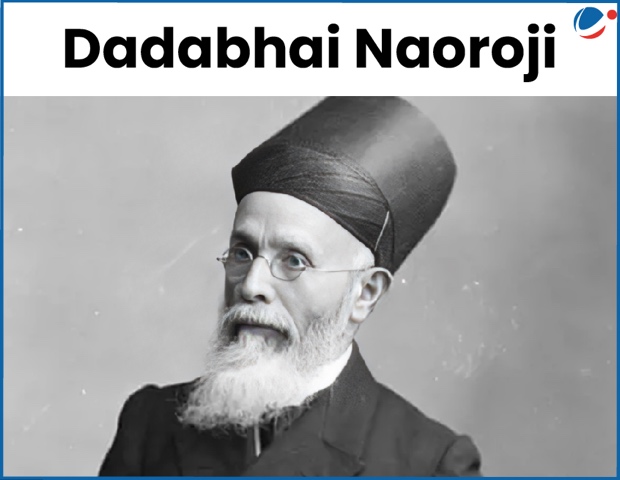
Why in the News?
Recently, the 200th Birth Anniversary of Dadabhai Naoroji was celebrated across the nation.
About Dadabhai Naoroji (1825–1917)
- He was an Indian scholar, trader and politician.
- He was known as the "Grand Old Man of India" and "Unofficial Ambassador of India".
- He was a founding member and three time president of the Indian National Congress (in 1886, 1893, and 1906).
- In 1906, He was elected as president of the Congress in order to bridge the differences between moderates and extremists.
- He became the first Indian to be appointed as Professor at Elphinstone and taught in the special classes held for the spread of women's education.
- In 1855, he left for London to join a business. He became Professor of Gujarati at University College London.
- In 1875, he was elected a Member of the Municipal Corporation, Bombay
Key Contributions of Dadabhai Naoroji
- Social Reform
- Promoted Women's Education: Founded the Student Literary and Scientific Society (1848), which established 6 schools for girls by 1849.
- Spread reformist ideas: Founded Rast Goftar newspaper, Co-founded Rahnumai Mazdayasan Sabha (1851) to reform Parsi society.
- Economic
- Drain of Wealth Theory: Highlighted how British policies drained India's wealth through taxation, salaries, pensions, and remittances.
- Major Literary works: Poverty of India, Poverty and Un-British Rule in India.
- His efforts led to appointment of a Royal Commission, the Welby Commission (Chairman), to enquire into the financial policy of the India Government. (Dadabhai Naoroji was a member)
- He also started a newspaper called 'Voice of India'.
- Political
- Moderate leader: He was a firm believer in Parliamentary democracy and advocated constitutional and peaceful methods like petitions, prayers, and protests.
- Founded: The London Indian Society in 1865 and the East India Association in 1866.
- First Indian MP in British Parliament: Elected for the Liberal Party in Finsbury Central at the 1892 general election.
- Mentorship: Naoroji played a crucial role in mentoring future INC leaders such as Bal Gangadhar Tilak, Gopal Krishna Gokhale, and Mahatma Gandhi.
- Ethical
- He expounded the need for purity in thought, speech and action in his book 'The Duties of the Zoroastrians'.
- Education:
- Universalization of Elementary Education: The first effective step in introducing compulsory Primary Education was taken by Dadabhai Naoroji.
- He, along with Jyotiba Phule, put forward the demand for four years of compulsory primary education before the Indian Education Commission (Hunter Commission) in 1882.
- Universalization of Elementary Education: The first effective step in introducing compulsory Primary Education was taken by Dadabhai Naoroji.
Conclusion
Dadabhai Naoroji was a pioneering nationalist who combined social reform, economic critique, and political action to lay the foundations of India's freedom struggle. His Drain of Wealth theory and advocacy of Swaraj gave a clear direction to nationalist aspirations. Even today, his vision of equity, education, and self-governance continues to inspire India's democratic and developmental journey.



